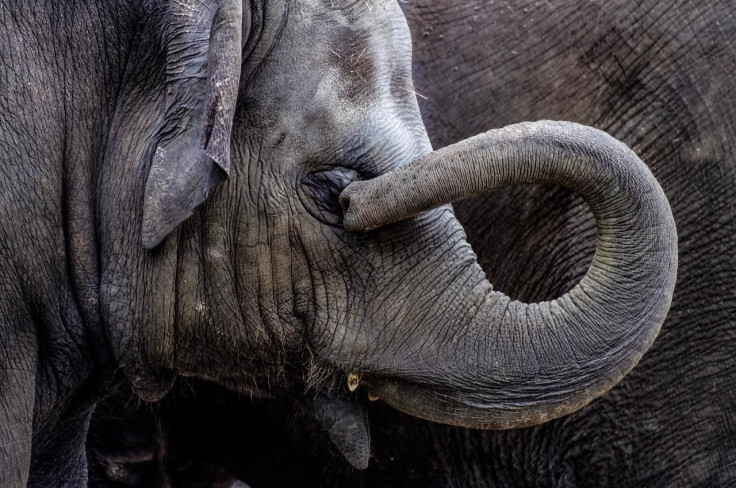Mother Elephant Refuses To Leave Dead Calf, Carries Carcass In Trunk For 2 Days
An elephant in India was spotted carrying its dead calf for miles over two days. Videos of the heart-wrenching scene have gone viral on social media.
The animal was initially seen alone but was later joined by her 30-strong herd. The adult female elephant refused to leave the calf's body after it died Friday morning in Jalpaiguri, a region in the Indian state of West Bengal known for its tea gardens. The mother picked up the dead calf with her trunk and traveled from one tea garden to another, NDTV reported.
Forest officials said the elephant and her herd wandered around 4.3 miles with the dead calf for two days.
#WATCH | WB: A mother elephant seen carrying carcass of her dead calf in Ambari Tea Estate, Jalpaiguri. A team of Binnaguri wildlife reached there to retrieve the carcass but elephant walked away to Redbank Tea Estate. Cause of death yet to be ascertained.
— ANI (@ANI) May 27, 2022
(Source: Unverified) pic.twitter.com/cPFSWtRDGk
The mother elephant was initially spotted alone but was later joined by a herd of 30 to 35 elephants, Anshu Jadav, a forest officer, told The Hindu.
"The elephants traveled at least 7 km from one garden to another, causing panic among the people," another officer said.
After meandering through different tea gardens, the elephants laid the carcass near a bush in the Red Bank tea garden. The herd remained there for two days. Forest officials monitored the herd's movements and used drones to keep an eye on the situation.
The cause of the calf's death is unclear.
"Elephants are known to take extra care for their calves. We have come across several incidents of elephants pulling all stops to rescue their calves from any kind of distress. This incident is also an indicator of elephant behavior. What is significant here is that the entire herd has joined the grieving female," said Shyama Prasad Pandey, coordinator of the Wildlife Trust of India-SPOAR elephant corridor monitoring project in northern West Bengal.
Around 514 elephants reportedly inhabit the forested patches of north Bengal, according to the last elephant census. Conflicts between humans and elephants in the area have also been reported in the past.
Researchers have found that Asian elephants, like their African counterparts, mourn their dead and sometimes carry dead calves in their trunks for days or weeks. The co-authors of a recent study told Live Science that Asian elephants experience some sort of emotional response to the death of a kin.
"Understanding elephants' response to death might have some far-reaching effects on their conservation," said Sanjeeta Sharma Pokharel, of the Smithsonian's National Zoo and Conservation Biology Institute, and Nachiketha Sharma, of the Kyoto University Institute for Advanced Study. "We have personally observed that when people witness an elephant responding to a dead kin, there will be some sense of relatedness, compassion and empathy towards the species. Therefore, anything which instantly connects people might pave the way for coexistence in elephant ranging countries."























